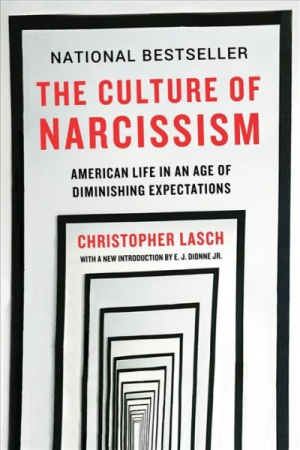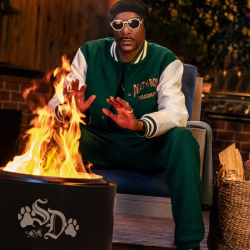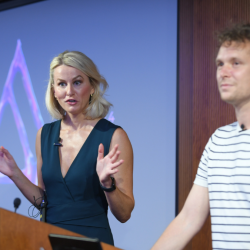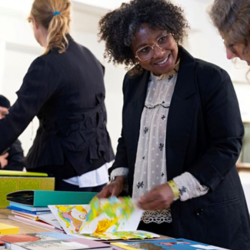Christopher Lasch’s The Culture of Narcissism describes how the individualization and emphasis on personal success on one hand, and the failing of structures linking individuals gave rise to narcissism. In a society divided by filter bubbles, echo chambers and self-indulgence on social media platforms, some salute his arguments for standing the test of time. In 2023, Lasch’s observation of an increasingly lost sense of reality (‘What even is real anymore, ChatGPT?’) rings almost prophetic. Even the subtitle of his book American Life in an Age of Diminishing Expectations hits a nerve 44 years after its publication.

Since 2020 the world has been shaken by various events. Crises has become commonplace and almost feels trivial. Memes joke about alien invasions , the last crisis missing, and even then, how surprised would anyone be? The answer is: probably still quite surprised. There seems to be a nonchalance around crises underlining a sense of truly living in an age of diminishing expectations. In a troubled society determined by consumerism — rather than faith, traditions and community — what role does kindness play?
The kind industry?
Despite inflation and climate change, marketing and influencers continue to promote unrealistic standards of consumption, living and beauty ideals. Yet, there is another development. Big corporations are increasingly making more — or less — public attempts at adopting Corporate Social Responsibility (CSR). Marketing campaigns feature diversity and body-positivity and are praised for it. At PPM’s across the country creative directors scream: ‘We need a more diverse cast, the client will want a more diverse cast!!‘ And even producers in the incredibly waste-producing and short-lived commercial film industry are turning their attention to green producing.
What had happened? Have all creative directors had an epiphany to use advertising to create a more inclusive society? Did clients realize that the image of a heteronormative white family ignored vast parts of the population? Or did producers wake up with the urge to save the planet? Perhaps. Or perhaps there was a pressure they responded to. And in assuming so, where did this pressure stem from? Marketing can — to an extent — influence how people feel about brands and even support trends. However, any marketing messaging needs to be aligned with societal beliefs and values. Despite consumers being more individualized than ever before, there is a strong consensus of breaking old power structures and empowering voices unheard before. This social awareness is creating this bottom-up-pressure — but why?
Consumerism and social fabric
Why do consumers care about diversity and sustainability, when making a buying decision? Why do they want to buy a product or brand that can be considered kind but doesn’t just fulfil their immediate need? Marketing students learn in their first year that consumers will buy brands that align with their values. The desire to positively impact the lives of others — identified as universalism — is one of the ten human values identified by Schwartz. The fact that a majority of consumers request brands to align with this value shows one important thing. Consumers are humans that care about other humans. So can buying decisions be a thread in the social fabric holding modern society together, hence replacing concepts of ‘loving thy neighbour’?
There is no glossing over the fact that despite this development being admirable on paper, at the core of businesses adopting these practices isn’t kindness, but the goal to sustain their businesses, while remaining profitable. It either is the ultimate sell-out of human values, the most realistic way for society to live universalism in its materialistic setting or — most likely — something in between.
Featured image: Superette / Capturenow































